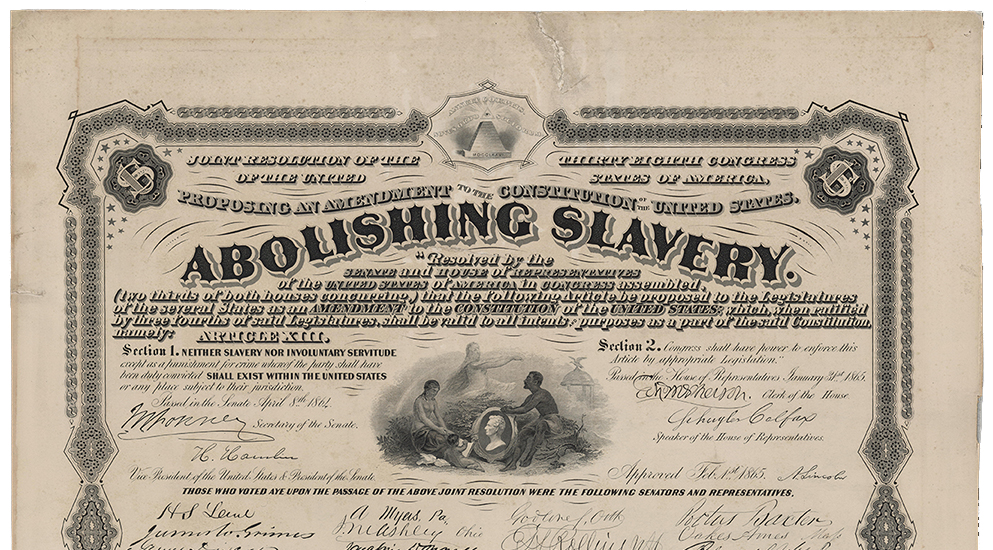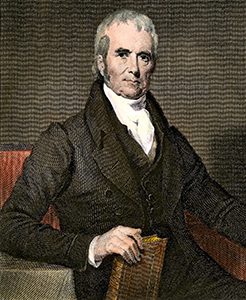On This Day In History
December 6, 1865, the 13th Amendment was passed, abolishing legalized slavery.
The 13th Amendment abolishing slavery is certified by the Secretary of State. (Library of Congress)
The 13th Amendment is one of the most important pieces of legislation in American history. Adopted in 1865, it abolished slavery and declared that “neither slavery nor involuntary servitude…shall exist within the United States.” The legislation gave Black Americans access to Constitutional liberties that they had previously been deprived of, like the right to keep their own wages, freedom of movement, the right to marry whomever they chose, and many more. Without the 13th Amendment, these rights would have remained denied by systems founded on racial prejudice.
The amendment also had broader implications for society’s ability to shape its laws through democracy. Prior to the 13th’s passage, slave owners held significant influence on legislative processes at every level of government, so the law helped to chip away at their power and give more autonomy to formerly disenfranchised citizens. Eventually, the 13th Amendment was used as a precedent for landmark Supreme Court cases such as Brown v. Board of Education of Topeka, which declared that educational segregation was unconstitutional. Furthermore, its core, anti-slavery principle continues to spur discussions on modern forms of exploitation that can take place in civil contexts such as human trafficking or labor practices. Though the 13th Amendment abolished slavery legally, its implications continue to be relevant today, informing our national understanding of what is fair and just treatment for all individuals.





